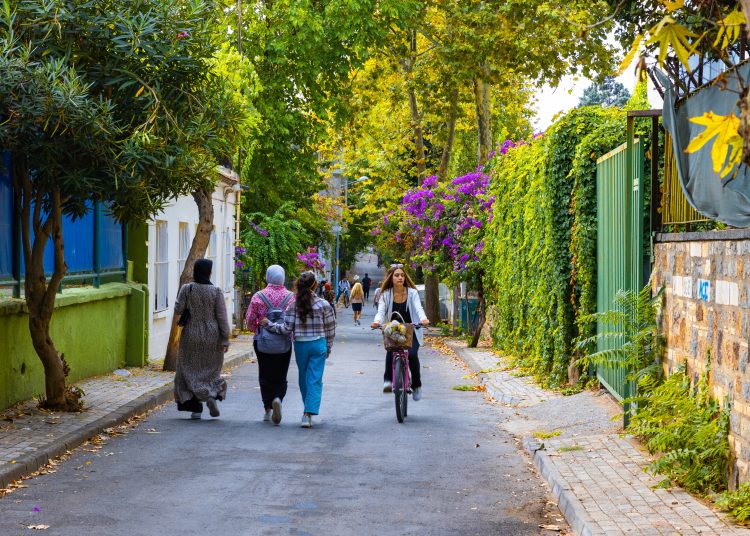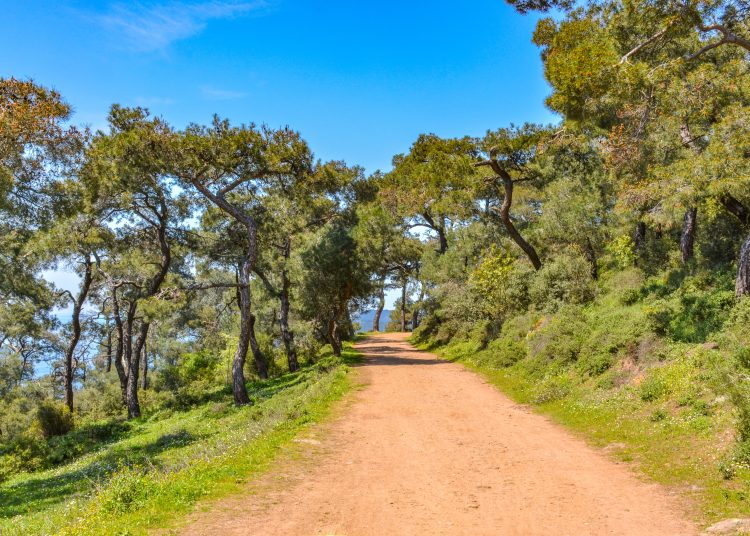The gentle hum of electric scooters and the soft clatter of bicycle wheels on cobblestone streets echo the commitment of the Princes’ Islands to a harmonious balance between cultural preservation and environmental stewardship. These islands, a serene escape from the bustling city of Istanbul, invite visitors to experience a living museum where the past and present merge. Adalar’s car-free policy not only protects its lush greenery but also maintains the unique cultural identity shaped by centuries of history. Locals and visitors alike breathe in the fresh air, free from the pollution of motor vehicles, and revel in the tranquility that allows the islands’ rich heritage to shine.
The Princes’ Islands exemplify the moral imperative of preserving cultural heritage alongside environmental sustainability. These islands serve as a living museum, capturing the diverse cultural and religious history of Istanbul’s past. Historical sites such as the Monastery of Hagia Triada and the Theological School of Halki are meticulously maintained, honoring the legacy of minority groups like the Greeks and Armenians. This preservation provides an educational experience for visitors, fostering a deeper understanding and respect for the complex history of human civilization. The islands’ narrative is intertwined with Istanbul’s own history, from its days as Byzantium and Constantinople to its current status as a city straddling two continents. The Hagia Sophia, once a cathedral and mosque and now a museum, reflects the islands’ multifaceted heritage. The islands’ commitment to preserving their past is about retaining the essence of the communities that have shaped them. The emotional ties of the locals to the islands’ history contribute to a strong, collective identity that resists the homogenizing forces of globalization. This cultural resilience is a crucial aspect of the islands’ allure, making them a unique destination that offers insights into the broader historical narrative of Istanbul and the region.

Building on this, the car-free policy of Adalar is a bold statement in environmental stewardship, reducing pollution and preserving the islands’ natural beauty. This initiative aligns with global efforts to combat climate change and serves as a model for sustainable tourism. By prohibiting cars, the islands offer tranquility and clean air, which are increasingly rare in urban settings. Istanbul, a city that spans Europe and Asia, is known for its bustling streets and the Bosphorus Strait, one of the world’s busiest maritime passages. Adalar provides a peaceful retreat from the city’s hectic pace. The islands’ transportation choices, including electric vehicles, underscore a commitment to ecological conservation that enhances the visitor experience. Adalar’s approach to sustainability reflects a broader trend in Istanbul, where public transportation like the IstanbulKart facilitates access to various historic and cultural sites while minimizing environmental impact. The islands’ greenery and fresh air attract visitors, demonstrating that environmental preservation can coexist with cultural heritage to the benefit of society.
Adalar’s retention of traditional modes of transportation and local customs, such as the Greek-style tavernas, supports the continuity of its unique cultural identity. This enriches the global cultural mosaic and provides a counter-narrative to cultural erosion. The islands’ way of life, which includes the use of electric scooters, golf buggies, and bicycles, shows the locals’ dedication to preserving their cultural heritage while embracing sustainable practices. Adalar’s example shows that it is possible to maintain a distinct cultural identity in the face of modern challenges. The islands’ story is part of Istanbul’s larger narrative, a city that has always been a melting pot of cultures, as evidenced by landmarks like the Grand Bazaar and the Blue Mosque. The population exchange between Greece and Turkey in 1923, which involved over 1 million Greeks from Turkey and about half a million Muslims from Greece, is a historical event that has left a lasting impact on the islands, with some Greeks and Armenians choosing to stay in Adalar. This historical context underscores the importance of preserving the islands’ cultural fabric, which is a reflection of the broader historical exchanges that have shaped the region.


Economic growth and infrastructure can be achieved without sacrificing cultural and environmental integrity. Sustainable development integrates preservation with modern needs, enhancing rather than hindering the local quality of life. The islands’ adoption of electric vehicles and the maintenance of green spaces are examples of how modernization can be harmoniously blended with conservation efforts. Adalar’s approach to development respects the islands’ historical significance and environmental beauty while addressing contemporary needs. This balance ensures that the islands remain a vibrant community for residents and an enriching destination for visitors, proving that it is possible to honor the past while building a sustainable future.

